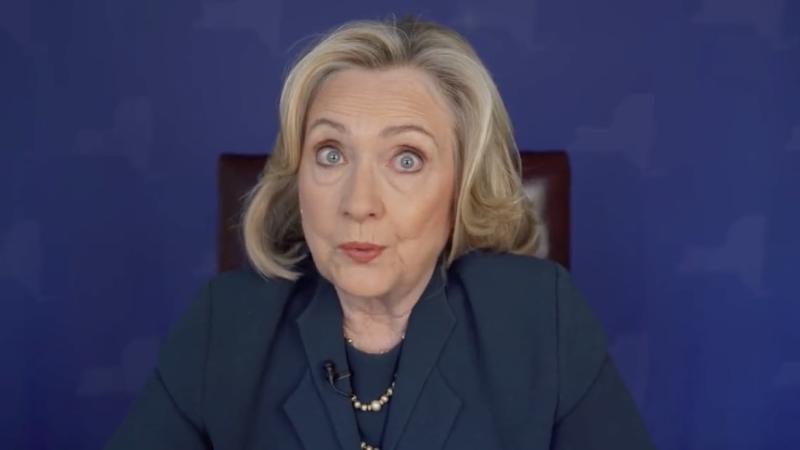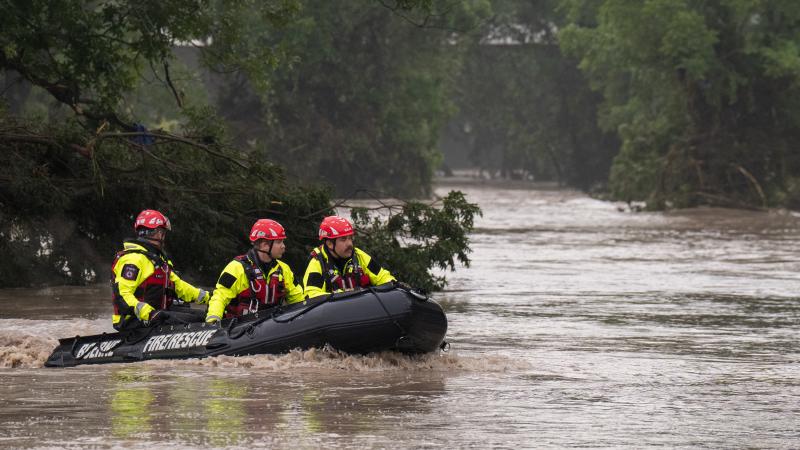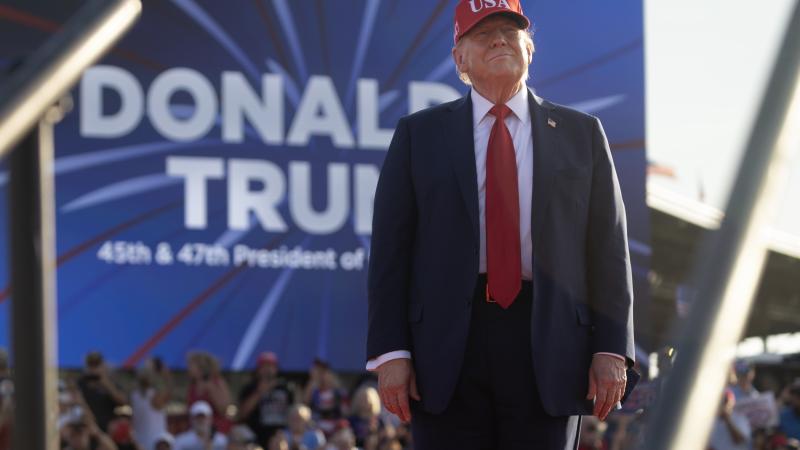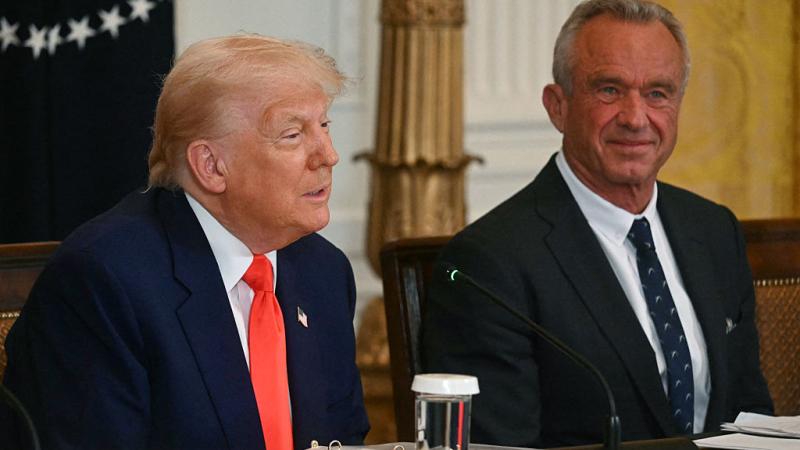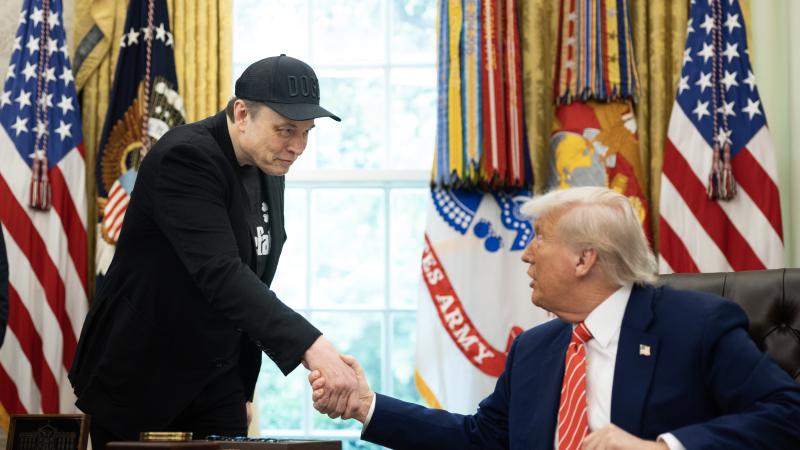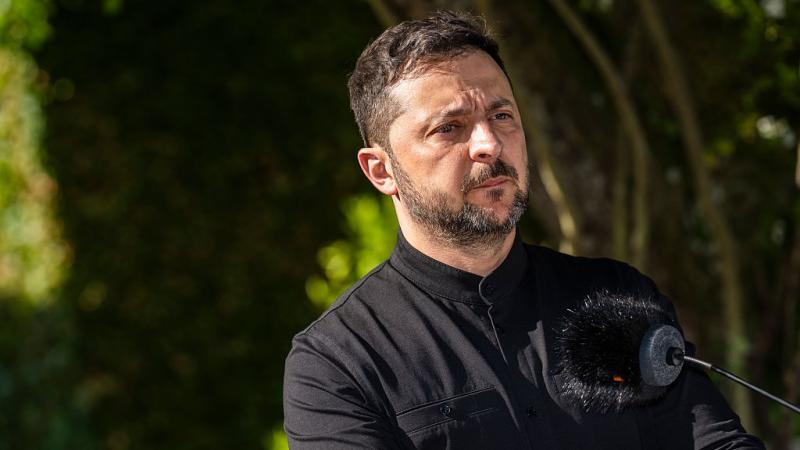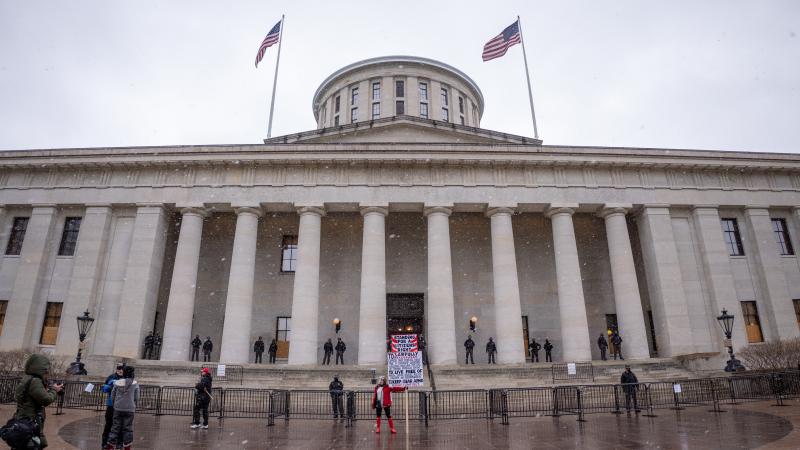Former FBI Deputy Director Andrew McCabe: 'shocked and disappointed' by bureau's FISA mistakes
Asked whether, given what he now knows, he would still have signed the June 2017 FISA authorization, McCabe responded, "No."
Former FBI Deputy Director Andrew McCabe said during his opening statement to the Senate Judiciary Committee on Tuesday morning that he was "shocked and disappointed" by the "significant number of errors and failures related to the FISA applications" that pertained to Crossfire Hurricane.
"To me, any material misrepresentation or error in a FISA application is unacceptable period," said McCabe. "The FBI should be held to the standard of scrupulous accuracy that the court demands. FISA remains one of the most important tools in our country's efforts to protect national security. The FBI is the custodian of that tool. I fully support every effort to ensure the FBI's use of FISA maintains the high standards the court and the American people demand and deserve."
McCabe also told the Senate panel that it was ultimately the decision of Special Counsel Robert Mueller and his team to remove former FBI agent Peter Strzok from the project due to the now-public texts between himself and former FBI lawyer Lisa Page. McCabe maintained that he never saw evidence of political bias in the work produced by Strzok while at the FBI.
During one exchange, Judiciary Committee Chairman Sen. Lindsey Graham (R-S.C.) revealed that former FBI Assistant Director of Counterintelligence Bill Priestap recommended that agent Strzok not be assigned to the Trump-Russia probe team.
The recently reelected Graham went on to ask McCabe whether, given what he now knows to be true, he would still have signed the June 2017 FISA authorization. McCabe responded, "No."
During an exchange with California Democratic Sen. Dianne Feinstein, McCabe said that he believes the evidence laid forth in both volumes of the lengthy Mueller report prove that the FBI had compelling evidence and significant reason to open the investigation both into the Trump campaign and then the president himself for a potential obstruction of justice.
Some committee members were more focused today on current events. Democrat Dick Durbin of Illinois argued that, though it was unfortunate what happened to Carter Page, it is now time to put the Crossfire Hurricane saga to bed as the nation prepares for a new president. Graham vehemently disagreed with his colleague saying, "we will hold more elections in this country" and accordingly, lawmakers must ensure that what happens in 2016 does not happen again.
Texas Republican Ted Cruz participated in a heated exchange with McCabe about the Logan Act, which is an obscure U.S. federal law that has never successfully been used to prosecute anyone, but was discussed (by Joe Biden among others) as a possible legal strategy to go after former National Security Adviser Michael Flynn.
According to Cruz, in the wake of last Tuesday's election, Democratic political commentator and former Obama White House employee Ben Rhodes said that Joe Biden is "having phone calls" with foreign leaders about "the agenda they're going to pursue January 20th."
A significant portion of the FBI's now defunct case against retired Lieutenant General Mike Flynn was predicted on a conversation the former general had with Russian diplomat Sergey Kislyak just days before President Trump assumed office in January 2017. This phone call between an incoming national security adviser and a foreign diplomat was enough to get Flynn roped into a years long investigation by the FBI, the legal repercussions of which continue to this day.
Today, Cruz asked McCabe whether Biden, who may assume the office of the president on January 20th, but has not yet officially been declared the winner of the U.S. election, violated the Logan Act by making the calls Ben Rhodes has now said he is. McCabe, ultimately, refused to answer Cruz's questions.
McCabe is testifying before the Senate Judiciary Committee as the panel continues its oversight of Crossfire Hurricane, the FBI's name for its investigation of potential collusion between president Trump's 2016 campaign and Russia.
McCabe was fired in 2018, just two days before his scheduled retirement from the bureau, by then-Attorney General Jeff Session. The former deputy director was initially scheduled to testify before the committee earlier this year, but the schedule changed as a result of several members of the committee contracting the novel coronavirus, as well as the expedited confirmation hearing of now-Supreme Court Justice Amy Coney Barrett.
This summer, former FBI Director James Comey, former Deputy Attorney General Sally Yates, and former Deputy Attorney General Rod Rosenstein testified before the Senate panel.
In his prepared opening remarks, McCabe wrote: "We didn't open a case because we liked one candidate or didn't like the other one. We didn't open a case because we intended to stage a coup or overthrow the government. We didn't open a case because we thought it might be interesting or because we wanted to drag the FBI into a heated political contest. We opened a case to find out how the Russians might be undermining our elections."

